- Home
- Alice Hoffman
Incantation Page 2
Incantation Read online
Page 2
I laughed and said, But she is! We look just like sisters.
Catalina’s father was a quiet man, a cobbler who sat beside a pile of boots. He was easygoing and never raised his voice the way my grandfather did, but Catalina looked down on him. A man who fixed other people’s shoes was worthless, she said. Catalina would someday marry her cousin Andres, who had come to live with her family when his own parents died of fever, and Catalina had high hopes for him.
Andres is smart, Caterina told me. He’ll take my father’s olive grove and make us rich.
On the evening of the burning in the Plaza, I started to go to Catalina’s house, but my grandmother came after me. Maybe one of the reasons I spent so much time at Catalina’s was because of Andres. We both had parents who had died, and we often talked about that, how you don’t forget such things, even if you don’t exactly remember.
But going next door was impossible now. My grandmother had pulled me aside, into the yard where we grew grapes. After all those ashes in the air, the vines smelled sweet.
Your grandfather and I bought something for you on the day you were born, my grandmother said. On a day when there’s fire, there should also be water. You’re sixteen now. You’re old enough.
I was stunned when she showed me a perfect strand of pearls. When my grandmother fastened them around my throat, I didn’t know what to say. I wasn’t used to her kindness.
The pearls were indeed as cold as water, but after a moment they warmed to my skin.
These were always meant for you, little Esther, my grandmother said. I was even more stunned to have her call me by this special name that my mother had used for me long ago, when she sang me lullabies.
Sometimes my grandfather called my grandmother by a special name, one my mother said I should never repeat. The secret name sounded like glass, something broken and strange. My mother had laughed when I once gave her my impression of my grandfather calling for my grandmother. I sounded as if I were choking.
That’s the way love sounds, my mother told me. You think it should feel like honey, but instead it cuts like a knife.
I was beginning to understand. My grandmother’s love was cold because she was afraid of things; that was why everything had to be perfect. I bowed my head and thanked her for her gift. Then, before I could stop myself, I threw my arms around her. The pearls were my treasure and my truth, and I would only wear them on special days. The most important days of my life.
THE NEXT MORNING, I was so deeply asleep that my mother had to shake me awake so that we could go to shop in the Muslim quarter. In the middle of the night I had heard men talking in my grandfather’s study under the stairs in the cellar; they were gathered in a room where I wasn’t allowed. Their conversations ran together into a chant that filtered through my sleep. In my dreams, I had walked through a gate. I often dreamed this, and my mother told me this was an unusual dream. It was a dream that some people never had, not if they stared into still water for days or weeks, not if they studied with the greatest teachers.
What did the gate look like? My mother asked me that morning. Was it made of gold or marble or emeralds? Was your father in the garden?
I didn’t want to disappoint my mother and tell her the truth: The gate in my dream had been made out of bones. I didn’t want to tell her that even though I’d had this dream many times, even though the garden was always the same, the gate was always different. In every dream I had no idea where I was. I was lost, unable to call out or find my own way. The only thing that remained the same was the garden, lush and emerald green.
WE WERE NOT allowed to go into the alajama—for that, you needed to be a person marked with a red circle—but we could go to the Muslim part of town, which was on the outskirts, since the Mudejars, like the Jews, were not allowed to live side-by-side with Christians.
Abra fully understood their chatter, a mix of Spanish and Arabic, and could converse with the storekeepers while bargaining for cinnamon and cloves and sweet blood oranges, which were red in the center, like a heart. In the Muslim stores there were enameled teapots, ceramic tiles, silk from Arabia spun by a thousand worms, candy made of sesame seeds and honey, copper bowls hammered with patterns that were so intricate there was no beginning and no end to their design.
WE WENT OUT of our way to make one special visit whenever we went to the quarter. The wife of a Muslim doctor who always bought yarn from my mother was also kind enough to offer us cups of mint tea when we came into her garden. There was a red lily that grew there, which my mother said could only be found in this one place. It was a miracle lily, one that grew from true devotion. This Muslim woman loved her husband as much as my mother had loved my father. The doctor’s wife’s perfect love had turned the lily red when she planted it in the ground and said a blessing over it; now it was one of a kind.
The doctor’s wife needed yarn because she was making her husband a coat. Something he would be safe in; something that would last. She and my mother looked at each other as though they knew each other well. Certainly, they both knew we lived in a time when anyone could become an outcast, suddenly and without notice.
On this day, the doctor came to the window while my mother and his wife were searching through the baskets for the perfect skein of yarn. The doctor was tall and quiet; a handsome, educated man. Some Christians didn’t believe in the medicines he used; all the same, when they were ill they often came to him for help.
His wife turned to him when he called a greeting to her; she held up some of the wool she had chosen and said something in a mix of Spanish and Arabic.
What did she say? I asked my mother.
She said, “The yarn woman has brought me something to help you fly, should you ever need to do so.” She said that’s why she’s making his coat the same color as the sky, so he can blend in and never be seen if he needs to escape from Encaleflora.
I thought this was because there was talk in town of casting out any Muslim who wouldn’t convert to Christianity—exactly what had been done to the Jews all those years ago. They called the Muslim converts Moriscos, but like most Conversos, they still weren’t considered equals.
As we were walking home, my mother told me that love was the same in any language. She told me what the doctor’s response to his wife had been, words that had nearly brought my mother to tears.
Fly away and leave you? Never.
The doctor’s wife was sick with something her husband couldn’t cure despite all his medicines. My mother was not a doctor, but she healed with herbs and spices and chanting. She was known for her skills, just as she was known for her beautiful yarn. She could take a spider’s web and bind a sore so it wouldn’t become puffy and green. She knew which mushrooms in the woods were good to eat and which ones caused aches or blindness or even death. For the doctor’s wife, my mother had once made an amulet out of yarn and wood; the doctor’s wife had slept with it beneath her pallet, but it had done nothing to cure her. Abra had also given the doctor’s wife a canister of honey lavender tea that helped most ailing people with their appetite, but every time we went to the quarter, the doctor’s wife was thinner, she was just a shadow of herself waiting for my mother in the yard, beside the red lily.
My mother was a great healer, but there were mysteries that meant a closed door, even to Abra.
When nothing helped the doctor’s wife, the one thing left to do was ask fate what would happen. When we got home from the quarter that day, my mother took out her cards. She kept them tied in a piece of blue silk that she stored beneath the pallet on her bed. The cards smelled like cinnabar, the perfume Abra used. They had odd letters on them, and those letters told the future.
The future of the Muslim doctor’s wife made my mother her put her cards away for a long time.
Grass
I looked forward to going into the hills with my mother to help her collect whatever plants she needed. We tried to go at the beginning of each lunar month at a time my mother called by a secret name—Rosh Hodesh
, the time of hope and possibility. As we searched in the meadows, she told me I must respect everything that grew. Some herbs were beautiful, they flowered and could heal, but their roots might be poisonous.
We collected different ingredients—some Abra would use for healing, others would be brought to the dying vats to change the color of the wool. Even a tiny addition would show in the yarn. A streak of tall grass or wildflower or seed could change everything. We collected bluebells, dark mushrooms that turned midnight-colored when soaked in water, the bark of the elder that is blue only at the core, inky reeds that grew by a pond, green grasses whose husks were blue-black. There was one beautiful plant we avoided; it had a red flower, similar to the one in the doctor’s wife’s garden, but if you touched this flower, blisters would form on your skin as though you were burning.
My mother was teaching me that the inside of something was not necessarily its outside.
Always look carefully, she told me. Look with more than your eyes.
When I told my mother of the pearls my grandmother had given me, she told me that on the day I was born my grandparents went to a town far away. They bought the pearls from a man who went halfway around the world, to waters we’d never heard of and would never see, a place where the most perfect pearls could be found.
It’s more than a necklace, my mother said. Look carefully at that gift and you’ll see what you mean to your grandmother.
That was one of the reasons I loved to go to the hills with my mother; she talked to me in a different way, as though she weren’t a mother, or a friend, but a teacher, one in possession of everything I would ever need to know.
What do you and your mother do up in the hills? my friend Catalina had asked me. Some people say there are witches up there.
I laughed. Catalina could be such a child. We look for blue things, I told her. We find whatever is beautiful and what can be used to heal.
Whenever we had filled our baskets, my mother and I often went to a place on the hilltop. From here we could gaze at our whole town, spread out before us; at this distance the village seemed tiny enough to fit in a pocket. Everything we cared about was down there, but my mother always stared at the sky. I thought she was remembering my father when she did this. I thought she could see his face somehow, in the shapes of the clouds.
That blue is the color of tears, she said.
Tears are clear, I told her.
My mother shook her head. She was my age doubled with three extra years. She knew more than I would even if I lived until the age of one hundred.
You haven’t looked closely enough. Tears are exactly that color. Blue.
My mother told me things that were not part of what her father had taught her. This was a different path altogether. She said, Women know things that men will never know. We keep the best secrets. We tell the best stories.
Late at night, when my grandparents were asleep, I would sit with my mother on her bed and listen to more of what she knew. I learned the cures for headaches and the cure for dreams. Lavender, coriander, green onions, lime juice, and licorice. Rue, garlic, ginger. Simple things that were surprisingly strong when mixed together in the right combination.
I learned that on Friday nights the candles must be lit exactly at sundown and that healing was best at Rosh Hodesh, when the month was new and fresh. I learned to recite the prayers. We praise you, eternal God.
My mother taught me so much as we walked through the hills and then as we talked late at night. But most important of all, she explained that it was all right to say No. I disagree. That was a gift. I understood it was power. The power to think my own thoughts. The power to believe in myself.
Heart
During that summer, whenever our chores were through, Catalina and I would often sit in her yard, in the shade of an olive tree. The season was hot and dreamy; it seemed it would last forever. We would talk and watch Catalina’s cousin Andres work in the fields beyond our houses. I couldn’t stop staring at him. It had always been that way, but now it was worse. I looked and looked as though I were some foolish, mindless girl. I knew he and Catalina would marry someday. That had always been what her family had planned since they first took him into their household.
All the same, I kept looking.
There were almond trees out farther in the fields, and their scent made me dizzy.
I wish I lived with you, I told Catalina.
You should move in with us. Then we would be together all day every day.
It was an idle day made for idle thoughts. We planned our future, down to the meals we would cook. Catalina’s favorite meal was spicy sausage; mine was rice with saffron and olive oil. We both liked pudding made of milk and almonds and sugar, and dark red wine whenever we could sneak a sip. We were making ourselves hungry and giddy. We had started to think of names for our children. Catalina would call her son Juan. I would call my daughter Angelina, little angel, a girl who does everything right and has none of my faults, someone who could please even my grandmother.
What is that you have? Catalina asked suddenly.
I had worn my pearls again, underneath my scarf. I knew I should put them in my treasure box under my bed, saved for important days. I had planned to do so, but they were so cool against my skin.
My grandmother gave these to me. They’re only for special occasions.
Is today so special?
I felt uncomfortable, as though I had something I had no right to have.
I just wanted to show them to you, I said.
It wasn’t exactly the truth, but it wasn’t a lie either.
When you and Andres have a daughter, you can buy her pearls, I told Catalina.
I want rubies. Catalina laughed.
While we were talking, Andres called for water. Catalina said he was lazy. She liked to tease her cousin and boss him around. Let him come here and get it for himself, Catalina said, but I’d been emboldened by all our silliness and plans for what was to come. My pearls made me feel like a woman and not just a girl. I forgot myself and my place. I ran out to the field with a flask.
Soil rose up and dusted my face, and Andres leaned over and ran his hand over my forehead. I felt so hot I nearly drank the water myself.
What are you and Catalina plotting, Raven? Andres asked me.
People had stopped calling me that long ago. It was a child’s name, but in Andres’s mouth, it was something more. I was surprised to find he was looking at me in a way I hadn’t expected. I wondered if the word Raven stuck in his throat like a knife.
Andres looked like an angel even though he had been digging in the field all day. His hair was long and pale. His eyes were blue. He was so unusual, so handsome, that people always stopped and stared at him, as I now did.
Your cousin thinks I should move in with you.
I couldn’t believe the nerve I had. I let it sound as if it would just be the two of us. Me and Andres. Together. As if we were husband and wife. Catalina hadn’t said it that way. She was the one with plans for Andres.
Andres laughed so hard he spit out the water he’d drank. Then he looked at me in another way.
Does she? And what do you say?
I say you’re drooling.
I laughed and ran away. That was probably the reason my heart hurt so much. I ran so fast. All the same, even without looking, I could feel Andres watching me.
I was the exact same age my mother had been when she’d met my father and promised herself to him. I could smell almond flowers, and the heat crackled the air. When I narrowed my eyes and tried to see into my own future, all I could see was the white brightness of the sun. My throat hurt, not because of what I’d said, but because I had more words that I was afraid to say. I had wanted to shout out: Yes! I say yes! Instead I had run away.
What’s wrong with my cousin? Catalina asked when I came back to sit beside her under the olive tree. He has a foolish look on his face. You shouldn’t have spoiled him and given him what he wanted. You have to teach boys how t
o behave.
Andres was standing in the field when he should have been working on the irrigation ditch. My mother could never match the blue of his eyes with any of her colors, not if she tried for a thousand years. Bluebell, water reed, wild grass, feathers, none came close. It was as though I was in a dream. I couldn’t see anything else but Andres, even from this distance, even though I knew he wasn’t mine.
Are you still staring at him? Catalina asked.
Of course not, I said to my best friend.
And just like that, it was done. It was the first time I’d lied to her.
But it would not be the last.
WHEN LUIS came home from the seminary we celebrated, even though he would only be with us for one short week before he had to return to his studies. Luis took a coach from Barcelona, then walked from the Plaza. All of our neighbors went out to their verandas to greet him. Luis must have been tired; all the same he took the time to stop at every house, asking after each neighbor’s health, wishing each one good fortune.
Luis looked like a man now, an important man of the church, no longer a boy. Coming toward us, he was almost a stranger; he wore the black coat with the red sash of a seminary student. Then Luis jumped up and down and waved and at last he looked like himself, my dear brother. A boy with long legs and the dark raven eyes that were our heritage, who carried a huge weight on his shoulders: the great man he was to be someday.
I ran up to him and hugged him.
Raven, he said, using my childhood name, I wish you could fly to visit me. Not that I miss you. He grinned.
Not that I miss you either, I teased back. I hugged him tighter. I missed him so much I could feel it at every hour of the day.
You look grown up, my brother said.
When our grandmother is done with you, you’ll look fattened up, I teased.

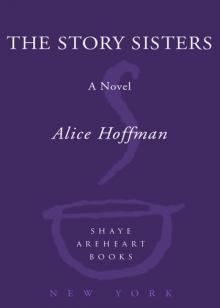 The Story Sisters
The Story Sisters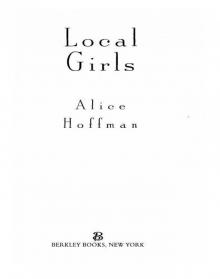 Local Girls
Local Girls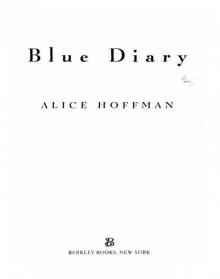 Blue Diary
Blue Diary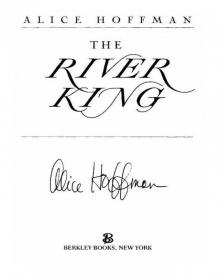 The River King
The River King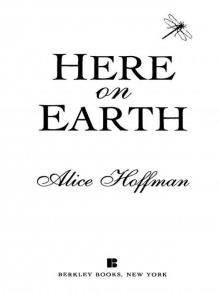 Here on Earth
Here on Earth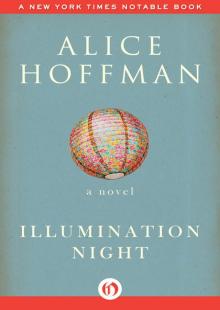 Illumination Night: A Novel
Illumination Night: A Novel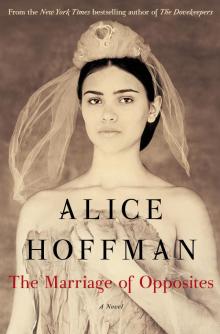 The Marriage of Opposites
The Marriage of Opposites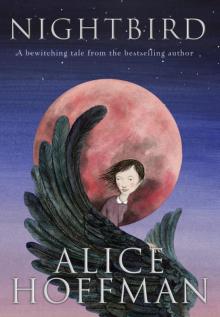 Nightbird
Nightbird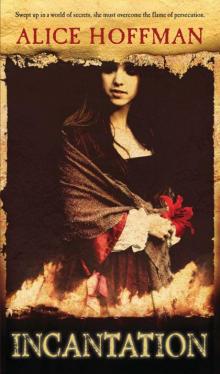 Incantation
Incantation Skylight Confessions
Skylight Confessions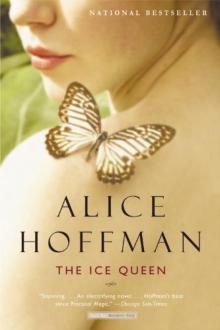 The Ice Queen
The Ice Queen Second Nature
Second Nature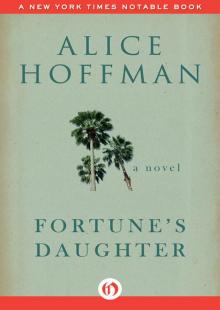 Fortune's Daughter: A Novel
Fortune's Daughter: A Novel Seventh Heaven
Seventh Heaven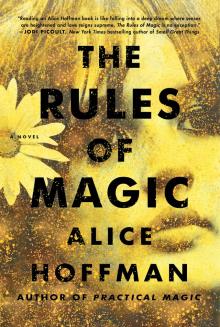 The Rules of Magic
The Rules of Magic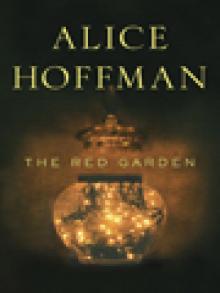 The Red Garden
The Red Garden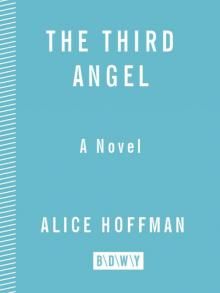 The Third Angel
The Third Angel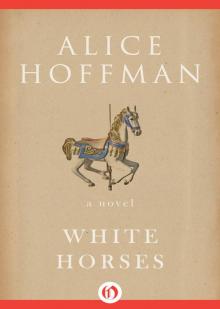 White Horses
White Horses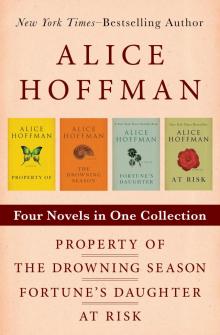 Property of / the Drowning Season / Fortune's Daughter / at Risk
Property of / the Drowning Season / Fortune's Daughter / at Risk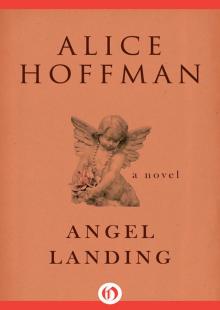 Angel Landing
Angel Landing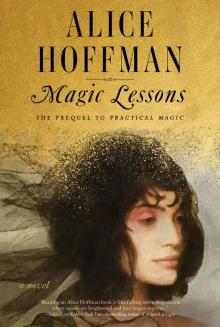 Magic Lessons
Magic Lessons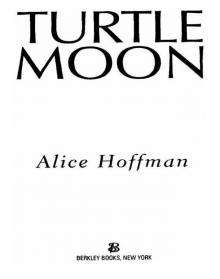 Turtle Moon
Turtle Moon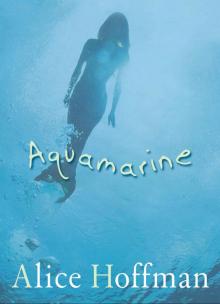 Aquamarine
Aquamarine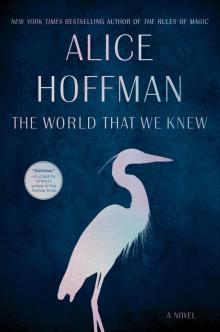 The World That We Knew
The World That We Knew Faithful
Faithful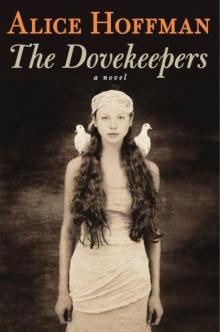 The Dovekeepers
The Dovekeepers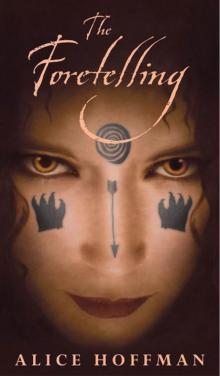 The Foretelling
The Foretelling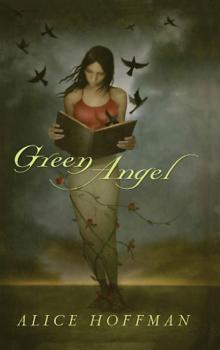 Green Angel
Green Angel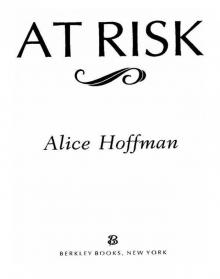 At Risk
At Risk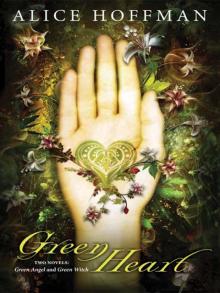 Green Heart
Green Heart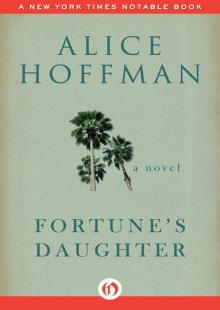 Fortune's Daughter
Fortune's Daughter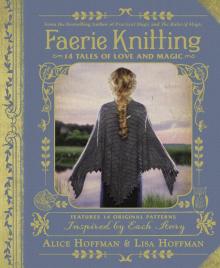 Faerie Knitting
Faerie Knitting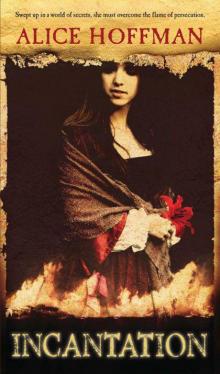 Incantation (v5)
Incantation (v5)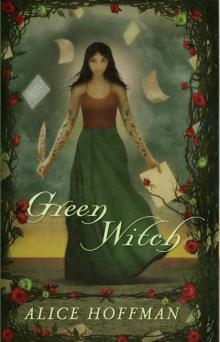 Green Witch
Green Witch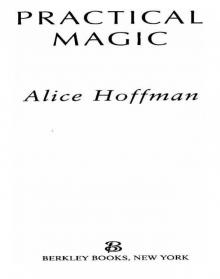 Practical Magic
Practical Magic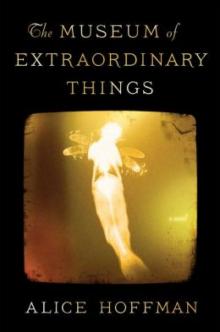 The Museum of Extraordinary Things
The Museum of Extraordinary Things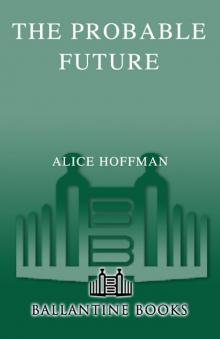 The Probable Future
The Probable Future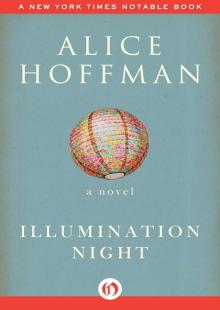 Illumination Night
Illumination Night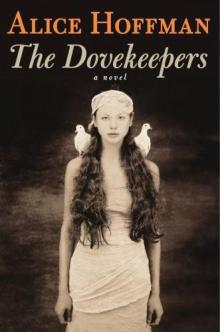 The Dovekeepers: A Novel
The Dovekeepers: A Novel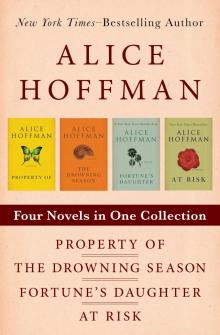 Property Of, the Drowning Season, Fortune's Daughter, and At Risk
Property Of, the Drowning Season, Fortune's Daughter, and At Risk